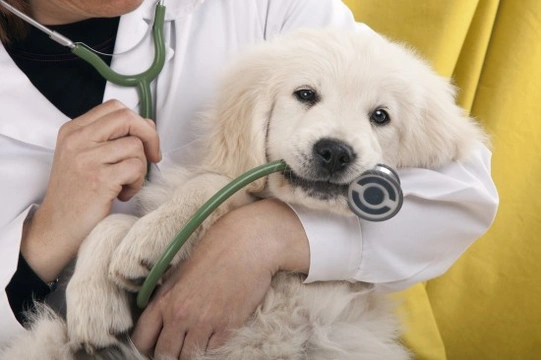Pets
Pets for studWanted petsBreedersAccessories & services
Knowledge hub
Support
Support & safety portal
Knowing when to call the vet for your cat or dog
Your pet is bound to get sick or have an injury at some point. But how do you know if your pet needs to be taken to the vet or just needs some TLC at home? Read on to find out.
If your pet has an accident
If your pet has been hit by a car, even if it was minor and they seem fine, you should always take them to the vet for a check-up, as they may have internal injuries.
Similarly, if your pet falls from a height, hits their head, becomes unconscious for any length of time or appears to be injured or has problems breathing, you should contact your vet.
If your pet is only grazed or has taken a light knock and appears unharmed, you can monitor them at home - however, if you have any concerns or your pet takes a turn for the worse, you should contact your vet.
If your pet consumes something poisonous
There are several things that we can eat, but dogs and cats can’t and can often prove fatal if consumed. This includes chocolate, which contains a chemical called theobromine, which is toxic to dogs, even in small quantities. Other foods that dogs and cats must not eat include raisins, sultanas and currants as well as onions, grapes and chives. An artificial sweetener called Xylitol, which is frequently used in ready meals, is also toxic to cats and dogs, so always check labels carefully.
If you suspect that your pet has eaten even a small amount of something that is known to be toxic, contact your vet straight away, even if they appear to be fine.
If your pet has a fit or seizure
It can be very distressing to watch a pet having a seizure, especially if it is the first time. The most important things to do are to stay calm, keep your pet calm and call the vet. If your pet has been fitting continuously for more than five minutes or has had more than one seizure in 24 hours, you should call the vet straight away. Otherwise, you can phone your vet for advice once your pet has stopped fitting.
If your pet is experiencing breathing difficulties
If your pet has a minor cold, this will probably go away on its own. However, if your pet is having problems breathing, they will require immediate veterinary attention. Noisy breathing, breathing too fast, laboured breathing, struggling to catch their breath or breathing that is shallow and uncomfortable all require a visit to the vet.
If your pet has swallowed something
If your cat or dog has swallowed something they shouldn’t, this might work its way out of their system naturally, but then again it might not. Small, solid objects are more likely to be passed naturally than things like dental floss or string, or bones or large stones, which can all cause problems. If your pet has swallowed something, call your vet for advice and see what they recommend.
If your pet has sickness or diarrhoea
Sickness or diarrhoea that lasts for less than a day can generally be managed at home, but if it goes on for any longer, your pet is lethargic, has severe stomach pain, is dehydrated, has blood in the stools, or has very dark stools, this could be a sign of something more serious, and they will need to be seen by a vet.
If your pet is limping
If your pet is limping, the first thing to do is a gentle examination to find out the cause. Look for swellings, soreness and wounds; check paws and claws too. If there are no obvious signs of injury, your pet may have a minor sprain or a sore paw and should get better in a day or two. Pets with more serious injuries will need to be seen by a vet.
If your pet has bad breath
If your cat or dog develops bad breath over time, this is usually a sign of a dental problem. However, it could also indicate a gut problem or something more serious like kidney disease or diabetes. Contact your vet for advice, particularly if your cat or dog develops bad breath very suddenly.
If your pet is drinking more or less water than normal
If your pet appears to be drinking much more or much less water than usual, this may be due to a change in the weather, what they have eaten or what they have been doing. However, if your pet will not or cannot drink for several hours, or is drinking a consistently high amount of water, you should seek advice from the vet.
If your pet is off their food
If your pet is off their food, they may simply have a minor stomach upset. However, if they do not eat or are not as enthusiastic as normal about their food for more than a day - and you haven’t made any recent changes to their diet - you should contact your vet.
If you are concerned about your pet’s health
This list is by no means exhaustive. If you are worried about your pet’s health, you can always call and speak to a vet or veterinary nurse for advice or reassurance. If anything seems out of the ordinary with your cat or dog, don’t be afraid to ask for help.



